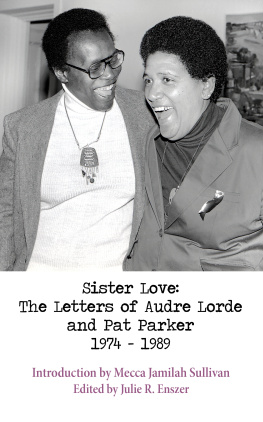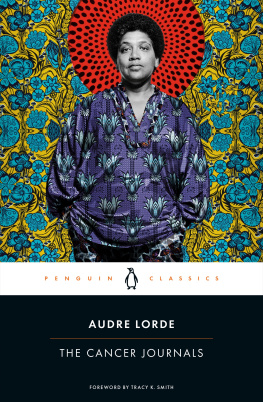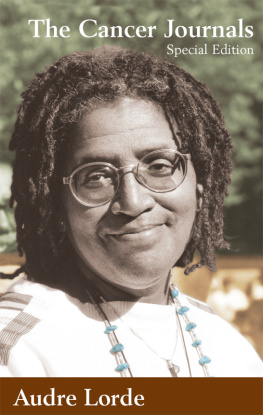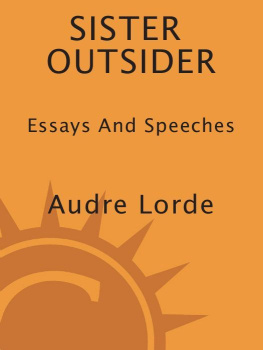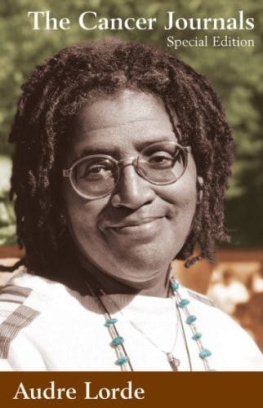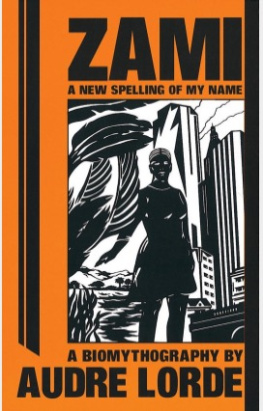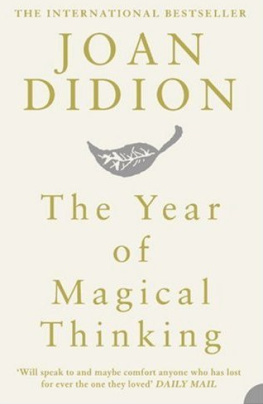ALSO AVAILABLE FROM BLOOMSBURY
On the Feminist Philosophy of Gillian Howie, edited by Victoria Browne and Daniel Whistler
The Subject of Rosi Braidotti, edited by Bolette Blaagaard and Iris van der Tuin
The Philosophy of Creative Solitudes, edited by David Jones
Enduring Time, Lisa Baraitser
Hannah Arendts Ethics, Deirdre Lauren Mahony
Topophobia, Dylan Trigg
Subjectivity and Identity, Peter V. Zima

BLOOMSBURY ACADEMIC
Bloomsbury Publishing Plc
50 Bedford Square, London, WC1B 3DP, UK
1385 Broadway, New York, NY 10018, USA
BLOOMSBURY, BLOOMSBURY ACADEMIC and the Diana logo are trademarks of Bloomsbury Publishing Plc
First published in Great Britain 2019
Copyright Matthew R. McLennan, 2019
Matthew R. McLennan has asserted his right under the Copyright, Designs and Patents Act, 1988, to be identified as Author of this work.
For legal purposes the constitute an extension of this copyright page.
Cover design: Eleanor Rose
Cover image: Free Fall, 1994 (photogravure, etching & drypoint on echizen kozo kizuki paper), Smith, Kiki (b.1954) / Museum of Fine Arts, Houston, Texas, USA / museum purchase funded by Steve Lindley in honour of Shelli and Jenna Lindley at One Great Night in November, 2015 / Bridgeman Images
All rights reserved. No part of this publication may be reproduced or transmitted in any form or by any means, electronic or mechanical, including photocopying, recording, or any information storage or retrieval ssystem, without prior permission in writing from the publishers.
Bloomsbury Publishing Plc does not have any control over, or responsibility for, any third-party websites referred to or in this book. All internet addresses given in this book were correct at the time of going to press. The author and publisher regret any inconvenience caused if addresses have changed or sites have ceased to exist, but can accept no responsibility for any such changes.
A catalogue record for this book is available from the British Library.
A catalog record for this book is available from the Library of Congress.
ISBN: HB: 978-1-3500-0415-3
ePDF: 978-1-3500-0413-9
eBook: 978-1-3500-0409-2
To find out more about our authors and books visit www.bloomsbury.com and sign up for our newsletters.
I dedicate this work with boundless love to Anna, Leo and Moses.
CONTENTS
This book was achieved with the help of a wide and tightly woven web of affiliation. While it is not possible to acknowledge everyone who had a hand in supporting me through its creation, the contributions of the following people especially should be noted. Any inaccuracies or omissions in the text are of course entirely my own.
My family and friends played a central role in my ability to see this project through. In particular, I thank Anna Seifried, Leo McLennan, Moses McLennan, Susan McLennan, Doreen Richmond, Audrey Lundy, Louise Legault, Pierre Legault, Christopher Seifried, Louise Guay, Chris Casimiro and Morgan McMillan.
My job at Saint Paul University has afforded me invaluable working relationships and rewarding friendships. I thank all of my colleagues who have shared their warmth and generosity of spirit, but in particular, I thank the following for their mentorship: Manal Guirguis-Younger, Stephen Stuart, Monique Lanoix, Rajesh Shukla, Sophie Cloutier, Richard Feist, Louis Perron, Heather Eaton, Lorraine Ste-Marie and Marc De Kesel.
I am daily inspired by the philosophical militants in my midst. Chief among them are Deniz Guvenc, Devin Zane Shaw, Julie Paquette, T. Mars MacDougall, Lesley Jamieson, J. Moufawad-Paul and Tyler A. Shipley.
I am grateful to the many students who keep me on my toes and who push me to hone my craft. In particular, I would like to acknowledge my students and auditors in the spring 2018 graduate Public Ethics course Disadvantage, for their participation in wide-ranging discussions on themes that are important to this book. Thank you Kaelen Bray, Corrine Budge, Tami Cogan, Monique Comeau, Natalie Dupuis, Cristina Mirian Fernandes Amaral, Donna Joy Ghadie, Laurence Pelchat-Labelle, Merranda Rivers and Allison Trites.
Ann Elliott and the students and volunteers in the Discovery University programme deserve special mention for an unforgettable classroom experience, recounted in the books Conclusion. I hope that the programme continues to thrive and to serve as a meeting place for people of all walks of life who are passionate about learning.
Some of the material in this book received the benefit of testing before a critical public. Thank you to Scott Birdwise and the other organizers of the 2016 York University/TIFF conference Coming to Terms with Film Philosophy for allowing me the opportunity to test out my thoughts on Breillat. Thank you also to Lung Chieh Lim and the other organizers of the 2018 University of Ottawa/Saint Paul University/Carleton University/Dominican University College joint conference Actualities: Philosophy and Our Present for allowing me the opportunity to read and receive feedback on a version of the books Introduction.
My editors at Bloomsbury Press Frankie Mace and Liza Thompson were as always kind, patient and exceptionally helpful throughout the writing process. Critical input from anonymous peer reviewers at the prospectus stage of the project was also greatly appreciated. Finally, Devin Zane Shaw provided invaluable comments on the draft manuscript and he embodies for me the ideal kind of academic: a true friend who is also an honest critic.
Introduction: Towards a definition of philosophy which incorporates vulnerability
At the time of writing, my four-year-old son has started to work out some of the broader implications of change. He has had an exceptionally big year: a new house, a new neighbourhood, a new baby brother, and the start of junior kindergarten. Although hes weathered most of it in characteristic good cheer, there are sometimes moments just after Ive read him his bedtime story and just before Ive tucked him in for the night when his reflections and his questioning take an unexpectedly serious turn.
Dad, are you and Mom getting older?
Yeah son. All of us are.
Will you be different next near?
I will. Probably just a few more grey hairs if Im lucky.
No no Dad! I dont want you to get old. You can go to the haircut shop and theyll fix it!... Will you live to be one thousand?
Im afraid that nobody lives to be one thousand.
How about one hundred and nine?
Maybe. I could. But Ill have to take really good care of myself, and also have a bit of luck.
How do you take care of yourself to be one hundred and nine?
Id have to do things like get enough sleep, avoid too much junk food, exercise often, and visit the doctor.
Ok Dad. On your one-hundred-and-ninth birthday Ill make sure you have a nap. And that people bring you a cake but its not sugary.
My son is on to something, and he will spend the rest of his life coming to terms with it. Human lives are vulnerable lives; human beings are vulnerable beings. While these claims might seem so obvious as to require no comment, it is remarkable that contemporary thinkers and tellingly, many of them from feminized, racialized, queer, poor and disabled vantage points have had to insist upon the fact of human vulnerability, painstakingly reworking our normative frameworks to incorporate it. From classical social contract theories to contemporary neoliberal discourses of personal accountability, a corrosive myth of self-sufficiency and radical autonomy has emerged which exerts a powerful effect on thought and language. This myth is deployed in the service of those in power, at all echelons of power. Its ideological function is, first, to convince those who are more and even most vulnerable that they are essentially responsible for their own plights. Second, it functions to discourage solidarity by transforming nascent social analysis into a moralizing discourse that punches both laterally and down (Harvey 2009; Brugre 2013; Butler 2015).




